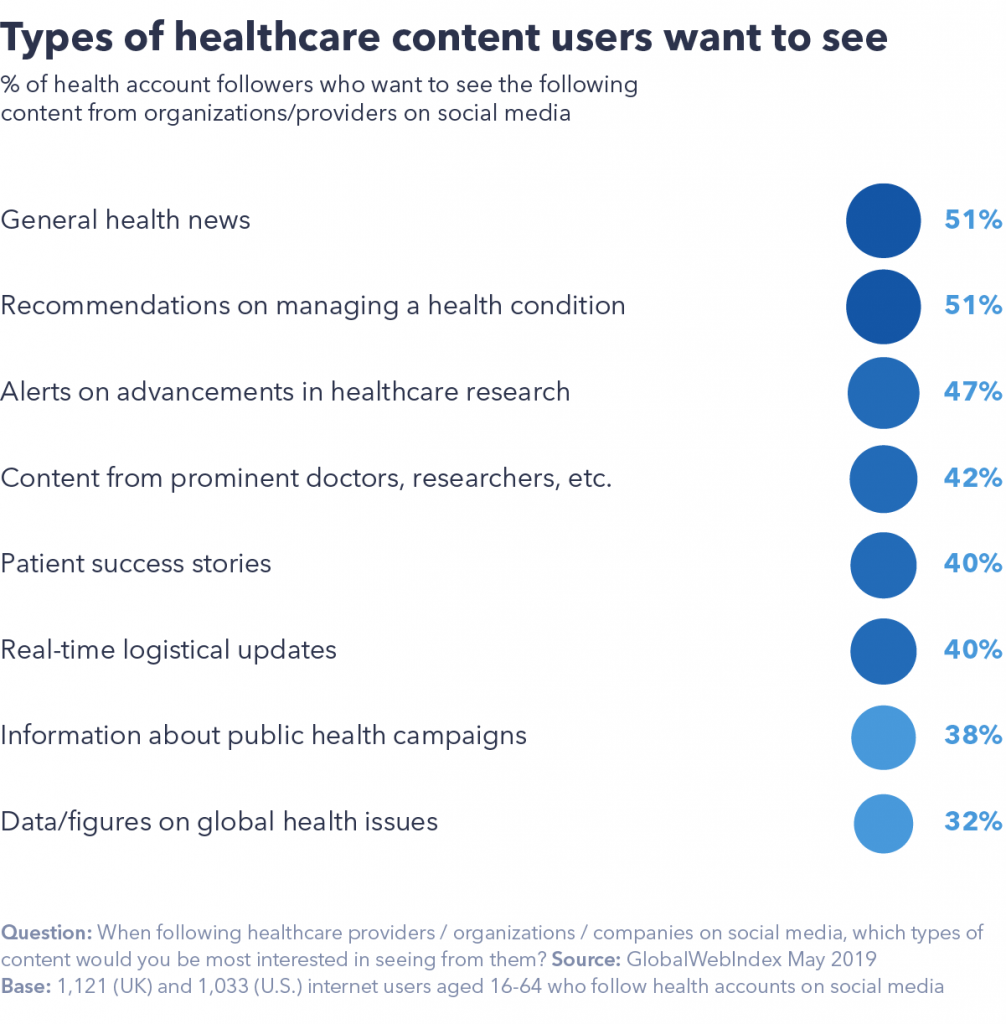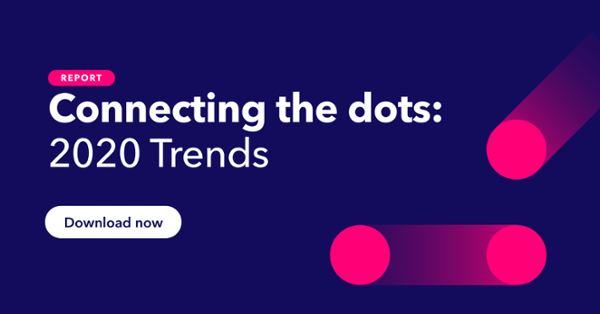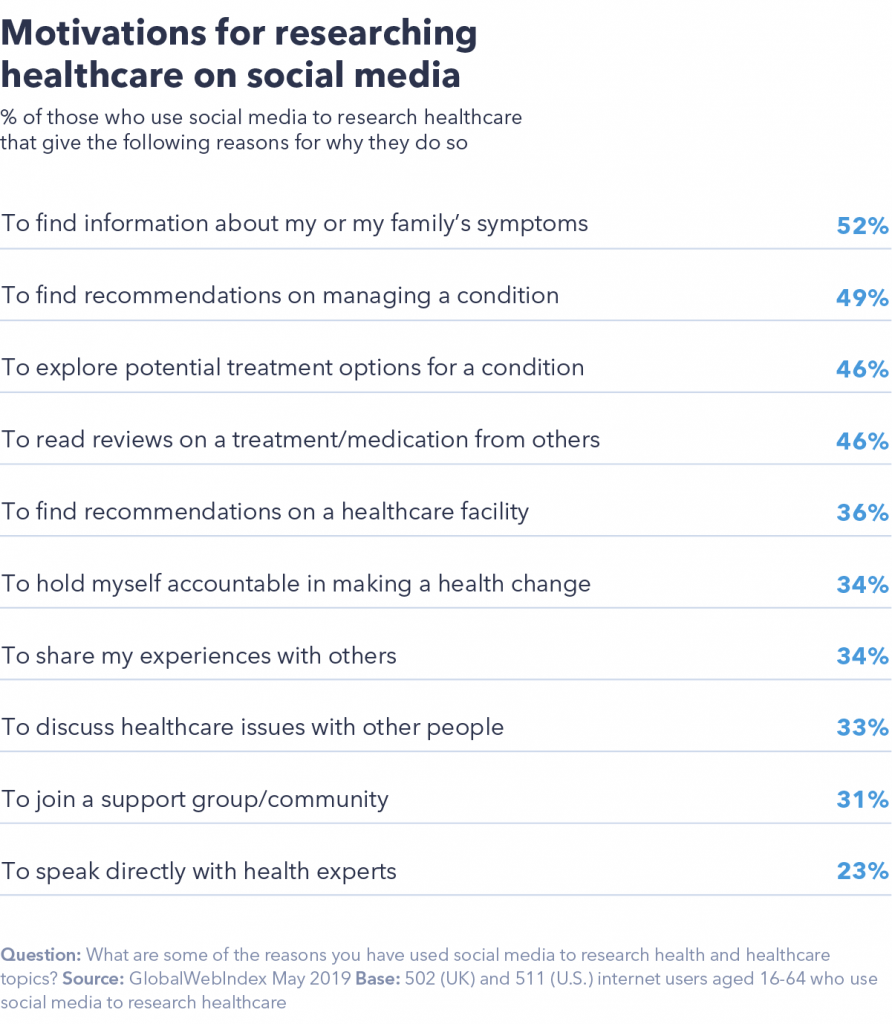Search any health-related hashtag on social media and you’ll find a free-flowing stream of content and conversation from people across the world. The shift to everything digital has impacted most industries, and healthcare hasn’t been left behind.
More generally, our global research reveals that a third of internet users say researching health issues or healthcare products is an important reason for using the internet – even more so than for activities like gaming and business-related networking.
This type of behavior is evident across markets too, but most so in the Philippines, Colombia and Poland.
Researching anything health-related online is also cross-generational. And unlike most other motivations, it’s Baby Boomers who are the most likely to say this, highlighting an opportunity for brands to effectively target older consumers in the space.
But doctor visits aren’t being ditched just yet. And while recommendations from health professionals and brand familiarity are still the most important factors when deciding between healthcare products to buy,
3 in 10 now say that information or recommendations online are very important – a figure that has climbed by 31% since 2017.
This shows just how central the internet has become in the healthcare research and education space. Social media will undoubtedly continue to play a big part in this shift.
In a bespoke study we conducted in 2019 among internet users in the UK and U.S., we explored the current social status quo from the consumer point of view.
Here’s what we found out.
Social is a key shortcut to health and lifestyle advice, but serious topics are treated differently.
Almost 1 in 4 said they turn to social media when researching healthcare topics, showing how its perception as a marketplace and browser is becoming a reality.
Facebook was the leading social platform for conducting healthcare research, revealing not only its popularity but how it’s seen as a reputable source for information.
Generation Z in particular, however, favored YouTube – unsurprising if you think about their well-documented love of video-based and influencer content.
When it comes to what health researchers are looking for on social media, lifestyle health topics were the most researched, like fitness, weight loss and nutrition.
The demand for this content has led to a boom of it on social media in the last few years, so much so that it’s become difficult to avoid. A quick search of the ‘#Fitness’ hashtag on Instagram brings up 370m posts on this platform alone.
In contrast, far fewer said they researched topics like vaccines, addiction and heart disease.
These conditions might have lower prevalence rates in the population, but this helps to shine a light on how social media’s role in healthcare currently is as a space for conversation around less serious health topics and concerns.
Social is for searching, but not for interacting with experts (just yet).
Consumers are more likely to be engaging passively when seeking information on healthcare topics.
This includes researching symptoms, browsing through recommendations and exploring treatment options. Social media’s community focus makes it ideal for finding advice from peers or those suffering from the same conditions.
It’s clear however that majority aren’t comfortable conversing with experts or openly discussing their health issues just yet. This is echoed when we look at the types of healthcare accounts consumers follow on social media.
Governmental health organizations like the NHS in the UK were top, but health influencers like those posting about exercising or recipes were the second most followed – ahead of well-known doctors, non-profit health charities, and academic health sources.
General health news, as well as recommendations for managing their own health conditions, were among the most popular types of content these health account followers wanted to see.
Far fewer said they wanted access to a more real-time, detailed point of view in their feeds.

With all of this in mind, there are a few key examples of experts who’ve been able to use social media to spread messages of positivity and support around important topics, especially among young people.
For example, the ‘TV Doctor’ Dr Christian Jessen, who gained status from the UK series Embarrassing Bodies, has been able to create a persona as the friendly and approachable doctor, leveraging his status on social media to connect with people.
Meanwhile, Alex George, who gained popularity after appearing on 2018’s Love Island, brands himself Dr Alex on his Instagram and YouTube, and frequently uses his one million-strong following to discuss topics like sexual and mental health, as well as having Q&A sessions on his Stories.
These types of healthcare influencers, alongside those with a strong fitness focus like The Body Coach, present unique partnering opportunities for brands too.
What healthcare digitization means for brands
As with any sensitive topic, consumers searching will always be on the lookout for reliable information. Recognised brands who’ve built up trust with their consumers can therefore act as a credible alternative for advice in place of in-person specialists.
There’s a big opportunity for brands across industries to join the growing conversation around healthcare topics on social media – whether that’s partnering with healthcare charities or health influencers, or just sharing valuable and educational content around topics that are relevant to their audience.
In this sense, brands can be an important bridge between consumers and health organisations and professionals.
The healthcare space benefits from having social media as a safe space to educate and support consumers who seek advice and information – but social media is yet to seriously disrupt the industry and replace the traditional GP-consumer relationship that consumers need.
Our research indicates there’s strong demand for new digital technologies to help consumers manage their health more effectively though, and social media is well placed to help solve this problem.
Its future in healthcare is definitely a bright one.

